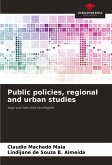The analysis of public policies (as a disciplinary field) seeks to understand theoretically the affectations that are generated in the development of these, depending on each moment of the process, in order to launch objective criteria different from those that a decision maker may have. This research work focuses on that, since it is a bet to understand why the public policy of Promotion of Permanence and Graduation of University students, implemented in Colombia more than ten years ago, has failed (at the time of implementation) without achieving convincing results in the reduction of university student dropout. The central hypothesis is based on an institutionalist approach, which considers this failure as a bigger problem than the simple impossibility of reducing dropout rates. It is proposed that this failure has been the result of an inability at the governance level, i.e., a failure of governance due to a problem of coordination and cooperation between autonomous and governmental institutions in charge of implementing the policy objectives.
Bitte wählen Sie Ihr Anliegen aus.
Rechnungen
Retourenschein anfordern
Bestellstatus
Storno








